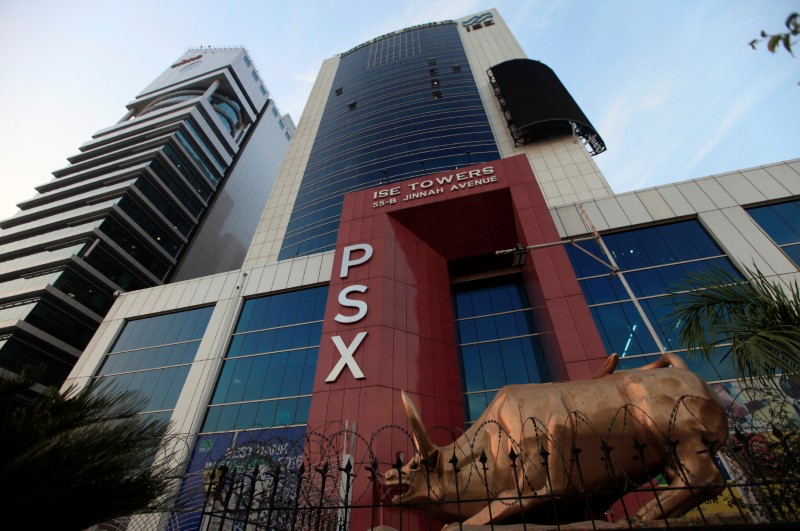By Ariba Shahid
ISLAMABAD (Reuters) -Pakistan's benchmark share index made its biggest single-day gain in nearly a year to close at a record high, a day after the government unveiled a budget that cheered investors by avoiding an anticipated increase in capital gains tax, despite an ambitious tax revenue target.
The benchmark share index closed up 4.9% at 76,338 points after presentation of the budget, which looks to raise tax revenue of 13 trillion rupees ($47 billion) for the year starting July 1, up nearly 40% from the current year.
"The market was expecting an increase in capital gains tax and so investors had reduced exposure significantly," said Adnan Sheikh, assistant vice president of Pak Kuwait Investment Co.
A record day was expected following the budget and Monday's cut of 150 bps in the central bank's policy rate, as "equities are the best option for the medium term", said Sheikh.
Pakistan's international sovereign bonds also rallied with longer-dated maturities seeing the largest gains. The 2036 bond added 1.4 cents - its biggest gain in more than two months - to be bid at just over 77 cents in the dollar, Tradeweb data showed..
Following a post budget press conference on Thursday, Finance Minister Muhammad Aurangzeb told Reuters that Islamabad plans to raise up to $1 billion through international bonds in the 2025/26 fiscal year, adding that up to $300 million will be raised through Chinese markets.
Apart from the capital gains tax, analysts say the budget and other revenue measures were in line with expectations.
The budget aims to strengthen the case for a new bailout deal from the International Monetary Fund (IMF), as Pakistan seeks an estimated loan ranging from $6 billion to $8 billion, to avert default in an economy growing at the region's slowest pace.
"We believe this budget will serve as prior action for a new IMF programme," Topline Securities said in a note.
Topline said that if parliament passes the budget in compliance with IMF measures, it expected a forward price to earnings ratio of 6.93 in three years time, for a historic high, from 3.4 now.
Defending the decision to boost tax revenue, Aurangzeb said the present tax-to-GDP ratio of a little under 10% was not sustainable.
Key objectives for the upcoming fiscal year include efforts to increase the ratio gradually to 13% in the next three years, Aurangzeb told a press conference after presenting the budget in parliament.
